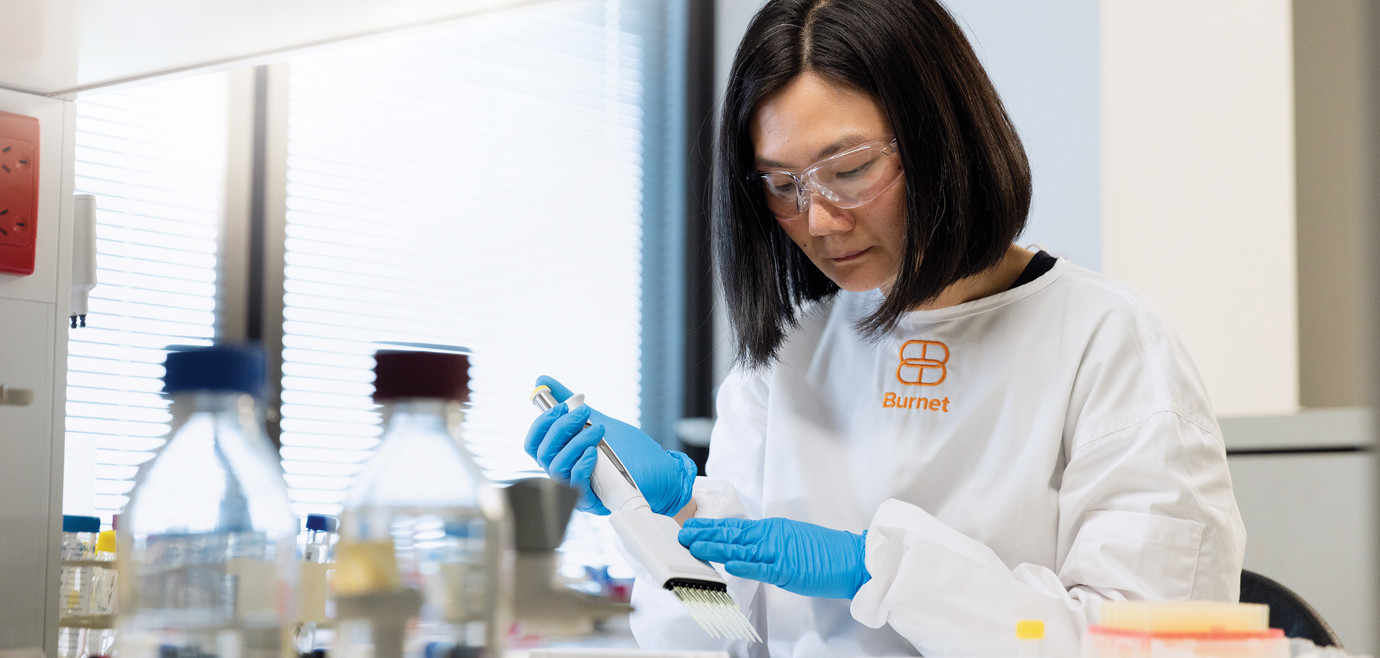
Burnet Institute is investing an initial $6.5 million in a landmark accelerator program – Burnext – designed to fast-track research into real-world outcomes to improve human health.
Burnext will take research projects through an intense process of milestone-driven project planning and delivery, to ensure outcomes within 24 months.
The accelerator model removes funding barriers, which often limit the ability of researchers to develop their ideas into outcomes.
To support the program, Burnet has established an Office for Research Translation, headed by director Jennifer Barnes, which will house Burnet’s translational activities, including the Burnet Diagnostics Initiative, the Burnet Vaccine Initiative and Burnext.
Ms Barnes said Burnext would leverage resources, financing and specialist support and use market-aligned systems and processes to solve complex health problems, especially those that impact disadvantaged communities.
“The creation of Burnext represents a significant milestone in our mission to create and translate knowledge into better health so no-one is left behind,” she said.
“Burnext will allow us to rapidly progress a pipeline of high-impact projects and opportunities, enhancing the capacity for our researchers to translate their work and have global impact.”
“It will allow us to better assess and progress the suitability of projects for further development and investment, aligning with current market and healthcare needs.”
Projects enter the accelerator for a fixed period, with progress expected to be transformative rather than incremental.
Burnet scientific director for research translation Professor Heidi Drummer will play a pivotal role in the Office for Research Translation, providing a whole-of-Institute focus for projects, including those being undertaken by Burnext.
Professor Drummer said Burnext would accelerate existing research projects that might otherwise take many years to produce outcomes.
“Currently, the process to progress academic research is slow, with researchers required to dedicate large amounts of time to writing grant applications that have low success rates,” she said.
“Burnext will provide the necessary funds to progress these projects to the next stage of development, without the uncertainty of needing to rely on competitive grant processes.”
“We will measure the success of Burnext using broad metrics around societal, economic and financial impacts.”
Burnet Director and CEO Professor Brendan Crabb AC said Burnext differed to other accelerator programs as it wasn’t focused solely on commercial outcomes.
“The thing that sets Burnext apart from other accelerator programs and venture funds is that it doesn’t focus purely on discovery or tech-based research but is instead open to projects across our research spectrum, including life science programs, public health interventions and international development projects,” he said.
“Burnext is the missing component in our suite of research translation initiatives at Burnet and complements our other commercialisation activities, ensuring we can fully support our innovations from concept to implementation.”
“We are looking for the next big breakthrough that is going to improve health.”
Initially, two projects will enter the program, with additional projects to enter the program as capacity expands.
Burnext is now open to applications from Burnet researchers, with successful projects to be announced in June.
Recruitment is underway to establish an advisory board and staff.
For more information, visit the Burnext webpage.
